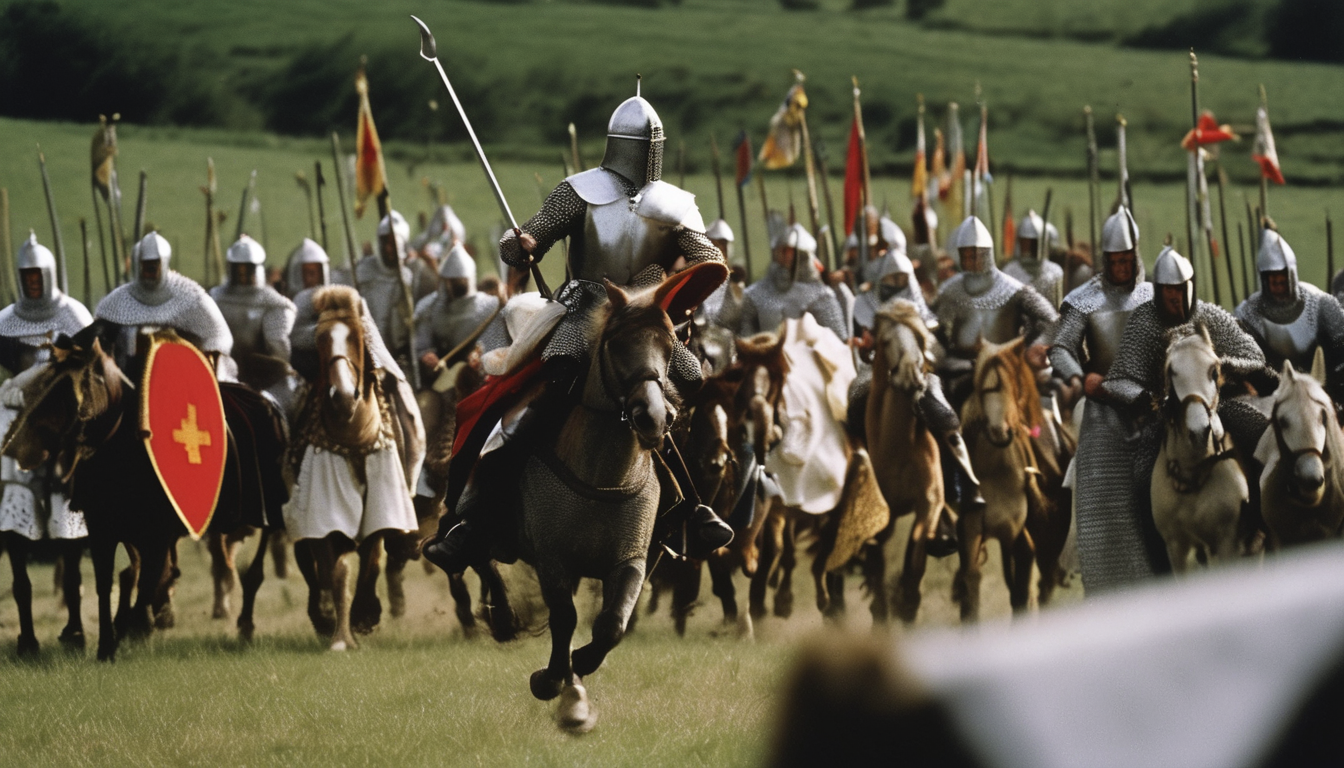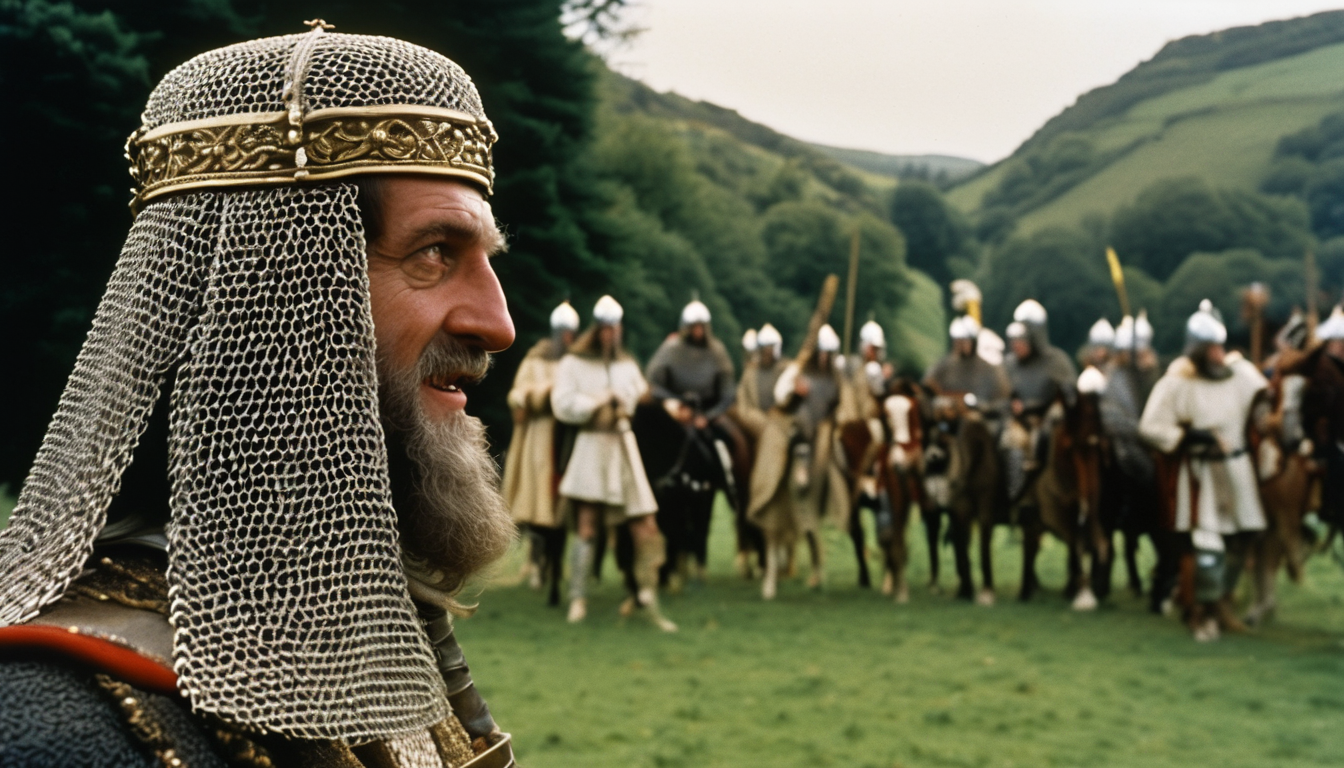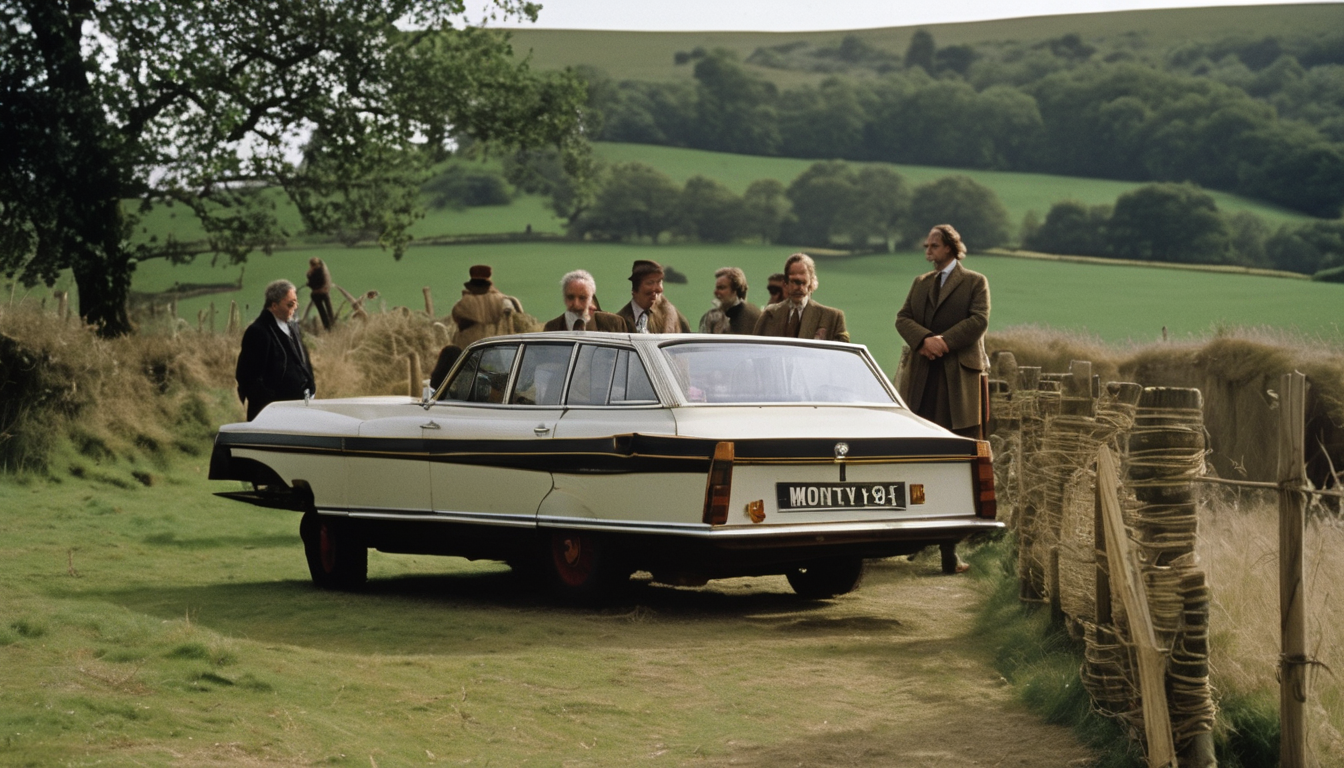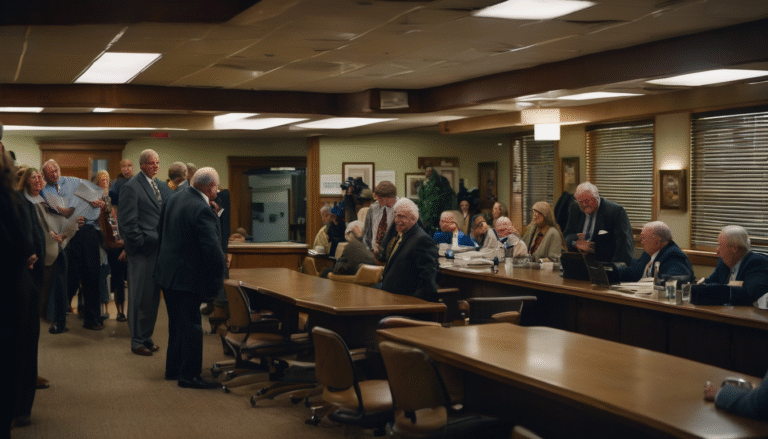
John Cleese, the beloved British actor and comedian, is marking 50 years of “Monty Python and the Holy Grail” with screenings and Q&A sessions. The film, which debuted in 1975, offers a unique blend of parody, absurdity, and social commentary, making it a timeless classic in the comedy world.
Background
The project began with the Monty Python team breaking away from their popular TV series to create a feature film. Unlike typical comedies of the era, Monty Python chose a historically significant narrative to satirize and lampoon, evolving into what would become one of the quirkiest and most celebrated comedies of all time.
The writing team, including Cleese, Graham Chapman, Eric Idle, Terry Gilliam, Terry Jones, and Michael Palin, brought their distinctive sensibilities to the table, crafting a film that would blend humor with broader cultural commentary. The result was a tapestry of witty sketches, nonsensical characters, and routines that defied the conventions of comedy prevailing at the time.
The film’s success was not immediate. It premiered to mixed reviews and modest box office results. However, its impact grew over time, with subsequent releases on television and DVD introducing it to new generations who found it both hilarious and groundbreaking.
Key Developments

Since its release, “Monty Python and the Holy Grail” has had a lasting influence on comedy and popular culture. Its innovative approach to humor and its willingness to subvert audience expectations have made it a touchstone for comedians and critics alike.
- Cleese and the team embraced absurdity and surrealism.
- The film’s influence can be seen in modern comedies.
- It challenges traditional storytelling and comedic norms.
- The Q&A session in San Jose provides an opportunity for Cleese to share insights.
Cleese has continued to promote the film through various screenings and appearances, often recounting behind-the-scenes stories and reflecting on its legacy. The enduring appeal of the movie has also been attributed to its use of humor as a form of social commentary, which resonates with audiences of different eras.
Industry/Market Context
The success of “Monty Python and the Holy Grail” reflected a shift in audience preferences toward more subversive and challenging forms of entertainment. In the 1970s, humor was often seen as a light-hearted escape from reality, but Monty Python brought a new level of intellectual engagement and social critique to comedy.
The film also represented a departure from the studio system’s approach to comedy, which often favored safer, more derivative content. Monty Python’s success showed that there was an appetite for fresh, unconventional humor outside the constraints of typical studio productions.
Today, the film continues to inspire new generations of comedians and filmmakers, with its influence evident in the works of many contemporary creators who strive to push the boundaries of comedy in innovative ways.
Implications & Risks
Monty Python’s risk-taking approach to comedy offers valuable lessons for the industry. By breaking away from the conventions of the time, the group paved the way for a more diverse and experimental approach to entertainment, encouraging others to take similar risks.
However, this success also highlights the importance of perseverance. Despite initial setbacks, Monty Python refused to be deterred, continuing to promote and support their work long after its initial release. This resilience is crucial for artists and creators who wish to leave a lasting impact on their field.
The film’s influence also underscores the value of humor as a tool for societal change and personal well-being. Cleese has often emphasized the therapeutic benefits of laughter, highlighting its role in reducing stress and improving overall health, making Monty Python a beacon of both entertainment and positivity.
What’s Next

Cleese plans to continue celebrating “Monty Python and the Holy Grail” with more screenings and Q&A sessions, allowing fans to connect with him and learn more about the creation of this beloved film. These events not only provide a nostalgic experience for long-time fans but also introduce the film to new audiences.
The ongoing legacy of Monty Python suggests that there is still room for fresh, unconventional humor in the entertainment industry. The success of Cleese and his colleagues demonstrates that by embracing risk and innovation, creators can continue to push the boundaries of comedy and entertainment.
As the film marks its 50th anniversary, it serves as a reminder of the power of laughter and the importance of embracing creativity in a world often dominated by safety and predictability. Monty Python and the Holy Grail remain a testament to the enduring appeal of intelligent, subversive humor.






